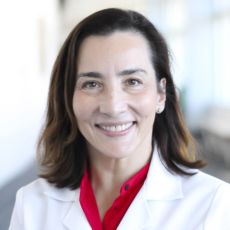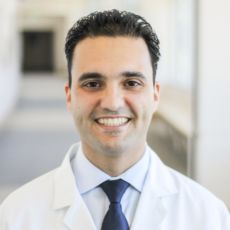Colon Cancer and Screening

Overview
Colon Cancer and Colon Cancer Screening
Colon cancer is the third leading cause of cancer death in the United States. Most colon cancers start as a growth on the inner lining of the colon and rectum, which are called polyps. Some types of polyps can change into cancer over time (typically many years), but not all polyps become cancer. The chance of a polyp turning into cancer depending on the type of polyp:
The U.S. Preventive Services Task Force recommends that average risk adults begin cancer screening at age 50. However, as there has been an increase incidence of colon cancer among younger patients, the American Cancer Society and many others now recommend average risk individuals to start colon cancer screening at age 45. Cancer screening is recommended to start sooner if an individual has a family history of colon cancer.
Screening
Methods of Colon Cancer
There are several tools that can be used for screening for colon cancer. Your Saint John’s Physician Partners Gastroenterologist will discuss the risks and benefits of available methods and guide you in making an informed decision about the best option for you.
Colonoscopy Overview
Colonoscopy is a procedure used to check for polyps or cancer inside the rectum and the entire colon.
- During the procedure the doctor can find and remove the polyps before they transform into cancer. This is the only test that can both detect and remove polyps in the earliest stages to prevent colon cancer.
- A colonoscopy is the only screening method that is recommended for high-risk individuals who have a family history or personal history of previous polyps found on colonoscopy.
- As a colonoscopy is the most accurate test, colonoscopies are recommended to be done once every 10 years for average risk individuals.
- Patients with a family history of colon cancer, or personal history of polyps found on previous colonoscopies require sooner colonoscopies.
Flexible Sigmoidoscopy Overview
Flexible Sigmoidoscopy is a procedure that checks for polyps or cancer inside the rectum and lower third of the colon, as the entire colon is not examined during this procedure, polyps may potentially be missed.
Stool Tests Overview
- The gualac-based fecal occult blood test is used to detect blood in the stool. This test needs to be done year if chosen as method of screening for average-risk individuals.
- The fecal immunochemical test (FIT) uses antibodies to detect blood in the stool. This test needs to be done yearly if chosen as method of screening for average-risk individuals.
- The FIT-DNA test combines the FIT with a test that detects altered DNA in the stool. This test is recommended to be done every 3 years and only for average-risk individuals.
- None of the stool tests have been shown to be able to detect polyps in the earliest stages. Positive testing would require a colonoscopy. Stool testing is not recommended for high-risk individuals.
Virtual Colonography Overview
Virtual colonography uses a CT scan to produce hundreds of cross-sectional images of your to provide a detailed view of the inside of your colon and rectum. Polyps that are detected on this exam would then require a colonoscopy for them to be removed.
Specialists





